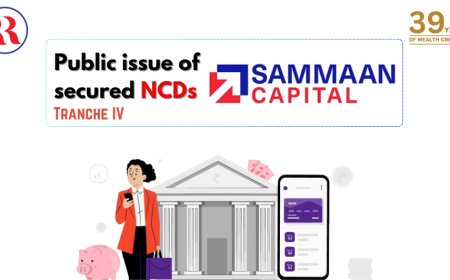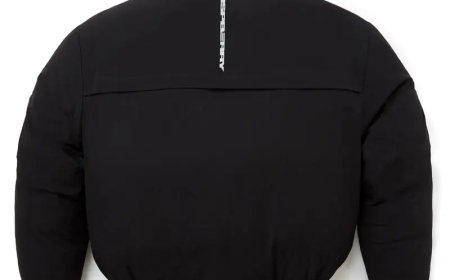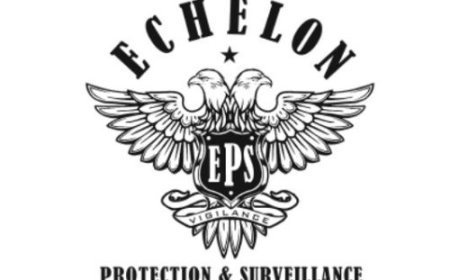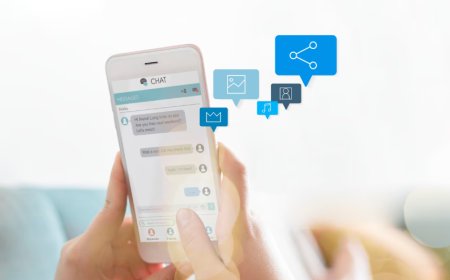How to Get Marriage Certificate Duplicate
How to Get Marriage Certificate Duplicate Obtaining a duplicate marriage certificate is a critical administrative task for individuals who have lost, damaged, or misplaced their original document. Whether you need it for legal identity verification, immigration applications, name changes, inheritance claims, or financial transactions, a certified copy of your marriage certificate serves as officia
How to Get Marriage Certificate Duplicate
Obtaining a duplicate marriage certificate is a critical administrative task for individuals who have lost, damaged, or misplaced their original document. Whether you need it for legal identity verification, immigration applications, name changes, inheritance claims, or financial transactions, a certified copy of your marriage certificate serves as official proof of your marital status. Unlike informal records or personal photos, a government-issued duplicate holds legal weight and is recognized by courts, embassies, banks, and government agencies worldwide.
The process of acquiring a duplicate marriage certificate varies depending on your location, the jurisdiction where the marriage was registered, and the specific policies of the issuing authority. However, the core principles remain consistent: you must identify the correct government office, submit a formal request, provide necessary documentation, and pay any applicable fees. This guide walks you through every step of the process with clarity, precision, and real-world context to ensure you obtain your duplicate certificate efficiently and without unnecessary delays.
Step-by-Step Guide
Step 1: Determine Where the Marriage Was Registered
The first and most essential step in obtaining a duplicate marriage certificate is identifying the exact jurisdiction where your marriage was legally recorded. Marriage licenses and certificates are typically issued and maintained at the county, city, or state level, depending on your country’s legal structure. In the United States, for example, marriages are registered at the county clerk’s office where the ceremony took place. In India, marriages are registered with the Registrar of Marriages under the state’s marriage registration act. In the United Kingdom, certificates are issued by the General Register Office (GRO) or local register offices.
If you’re unsure where your marriage was registered, begin by reviewing any documents you still have—such as the marriage license application, wedding invitation, or correspondence from the officiant. Contact the venue where the ceremony occurred; churches, courthouses, or event planners often keep records of the issuing authority. If you were married abroad, consult the embassy or consulate of the country where the marriage occurred to determine how to obtain a certified copy.
Step 2: Gather Required Documentation
Most agencies require specific personal and legal documents to verify your identity and your right to request a duplicate. Commonly requested items include:
- Full legal names of both spouses at the time of marriage
- Date of marriage
- Location of marriage (city and state/country)
- Government-issued photo identification (driver’s license, passport, national ID)
- Proof of relationship (if requesting on behalf of a deceased spouse)
- Marriage license number (if available)
Some jurisdictions may also require a sworn affidavit stating that the original certificate has been lost or destroyed. In cases where one spouse has passed away, a death certificate may be needed to prove eligibility. Always check the official website of the issuing authority for their specific list of required documents before submitting your application.
Step 3: Choose Your Application Method
Most government offices offer multiple ways to request a duplicate marriage certificate: in person, by mail, or online. Each method has advantages and disadvantages depending on your urgency, location, and accessibility.
In-person requests are ideal if you need immediate processing or have complex documentation. Visiting the office allows you to ask questions directly, receive confirmation on the spot, and sometimes get same-day service. However, this option requires travel and may involve waiting in line.
Mail-in requests are suitable for those who live far from the issuing office or prefer a paper trail. You’ll need to print and complete the official application form, attach certified copies of required documents, include payment, and send everything via registered or certified mail. Keep a copy of everything you send and request a return receipt for tracking purposes.
Online applications are increasingly common and often the fastest option. Many jurisdictions now offer secure portals where you can upload documents, pay fees electronically, and track your request. Websites like VitalChek (in the U.S.), the General Register Office (UK), or state-specific portals (e.g., California Department of Public Health) allow you to order certified copies with minimal paperwork. Ensure you are using an official government or government-authorized site to avoid scams.
Step 4: Complete the Application Form Accurately
Application forms vary by jurisdiction but generally ask for the same core information. Be meticulous when filling them out. Common fields include:
- Full legal name of applicant
- Current mailing address
- Phone number and email
- Full names of both spouses (including maiden names if applicable)
- Date of marriage
- Place of marriage (city, county, state/country)
- Reason for requesting a duplicate (e.g., passport application, name change, legal proceedings)
- Number of copies requested
Incorrect or incomplete information is the leading cause of delays. Double-check spellings, especially for names and locations. If your spouse has changed their name since the marriage, include both the married and maiden names as recorded on the original certificate. If you’re unsure about any field, contact the issuing office directly for clarification—do not guess.
Step 5: Pay the Required Fee
Fees for duplicate marriage certificates vary widely based on location, urgency, and format. In the United States, fees typically range from $5 to $25 for the first copy, with additional copies costing $3 to $10 each. In the UK, a standard certificate from the GRO costs £11, while expedited service may cost more. In Canada, fees range from $15 to $40 depending on the province. Some jurisdictions offer discounts for seniors or veterans.
Payment methods also differ. Most offices accept credit/debit cards, money orders, or certified checks. Cash is rarely accepted for mail or online requests. Avoid sending cash through the mail. If paying online, ensure the website uses HTTPS encryption and is officially affiliated with a government entity. Never use third-party payment platforms like PayPal or Venmo unless explicitly authorized by the issuing agency.
Step 6: Submit Your Request
Once your form is complete, documents are gathered, and payment is prepared, submit your request according to the chosen method. If applying in person, arrive early and bring all originals and photocopies. If mailing, use a reliable courier service with tracking and consider adding insurance for valuable documents. For online submissions, upload clear, legible scans of your documents—blurry or incomplete images will result in rejection.
After submission, you should receive a confirmation number or email. Save this for future reference. Some agencies provide real-time status updates via their portal; others may only notify you by mail or phone when your certificate is ready.
Step 7: Receive and Verify Your Duplicate Certificate
Processing times vary. Standard requests may take 2 to 6 weeks, while expedited services can deliver within 24 to 72 hours. Once received, examine the certificate carefully:
- Confirm that all names, dates, and locations match your records
- Check for an official seal, signature, and registration number
- Verify that it is marked as a “Certified Copy” or “Duplicate”
- Ensure it is printed on security paper if applicable
If you notice any errors—such as misspelled names, incorrect dates, or missing seals—contact the issuing office immediately. Most agencies allow corrections within a specific timeframe, often 30 days. Do not assume minor errors are insignificant; they can invalidate the document for legal use.
Step 8: Store and Protect Your Duplicate Certificate
Once you have your duplicate, store it securely. Keep the original in a fireproof safe or safety deposit box. Make two photocopies: one for your personal files and one to give to a trusted family member or attorney. Consider scanning the certificate and storing a digital copy in an encrypted cloud service with two-factor authentication.
Never carry your original certificate unless absolutely necessary. When submitting it for official purposes (e.g., visa applications), request that it be returned to you immediately after verification. Always ask for a receipt when handing over sensitive documents.
Best Practices
Always Request Certified Copies
Not all copies of a marriage certificate are legally valid. A “certified copy” is an official reproduction issued by the government agency that holds the original record. It bears an embossed seal, a raised stamp, or a signature from a registrar. Photocopies, scanned images, or printouts from unofficial websites are not acceptable for legal purposes. Always specify that you need a “certified duplicate” when applying.
Keep a Digital Backup
Digitizing your marriage certificate is one of the smartest protective measures you can take. Scan the document at 300 dpi or higher in PDF format. Store it in multiple secure locations: encrypted cloud storage (e.g., Dropbox with two-factor authentication), a password-protected external hard drive, and a physical backup at a trusted relative’s home. Label the file clearly: “Marriage_Certificate_[YourLastName]_Certified.pdf.”
Apply Early for Time-Sensitive Needs
Many legal processes—such as immigration, adoption, or estate settlement—have strict deadlines. Delays in receiving your duplicate certificate can derail these timelines. Begin the process at least 8 to 12 weeks before any deadline. If you’re applying for a visa or green card, check whether the receiving country requires apostilles or legalization. These additional steps can add weeks to the process.
Use Official Sources Only
There are many websites that claim to help you obtain marriage certificates for a fee. Some are legitimate government contractors (like VitalChek in the U.S.), but others are scams. Always verify the URL: official government sites end in .gov, .gov.uk, .ca, or .au. Avoid sites with poor grammar, excessive pop-ups, or requests for sensitive information like Social Security numbers or bank details. If a site asks for payment via wire transfer or cryptocurrency, it is almost certainly fraudulent.
Understand International Requirements
If you were married abroad or need the certificate for use in another country, additional steps may be required. Many countries require documents to be authenticated through an apostille—a certification under the Hague Convention. This involves obtaining a seal from the foreign affairs department of the issuing country. For example, a U.S. marriage certificate used in France may need an apostille from the Secretary of State in the state where it was issued. Always confirm the receiving country’s requirements before submitting your documents.
Update Your Records After Name Changes
If you changed your name after marriage, ensure that your duplicate certificate reflects the correct legal name. Some agencies will issue a certificate with your maiden name and a separate name change document. Others may issue a single certified copy with your married name. If you need the certificate to reflect your current legal name, provide proof of your name change (e.g., court order, updated Social Security card) when applying.
Tools and Resources
Official Government Portals
Here are trusted resources for obtaining duplicate marriage certificates by region:
- United States: CDC’s Where to Write for Vital Records – provides direct links to each state’s vital records office.
- United Kingdom: General Register Office (GRO) – official portal for England, Wales, and Northern Ireland.
- Canada: Provincial vital statistics agencies (e.g., ServiceOntario, Service Québec).
- Australia: Australian Government – Vital Records – links to state registries.
- India: Registrar of Marriages under the Hindu Marriage Act or Special Marriage Act; state-specific portals like Maharashtra Government.
Third-Party Authorized Services
Some private companies are officially authorized to process requests on behalf of government agencies. These services often offer faster turnaround and customer support but charge additional fees. Examples include:
- VitalChek – Authorized by over 200 U.S. states and territories.
- OrderCopies – Provides certified copies in Canada and the UK.
- Document Centre – Offers international document authentication services.
Always verify that the third-party service is listed as an official partner on the government agency’s website before using it.
Document Management Tools
Organizing your vital documents is easier with digital tools:
- Evernote or Notion – Create a secure digital vault with scanned certificates and notes on where each document was issued.
- LastPass or 1Password – Store passwords for government portals and encryption keys.
- Google Drive with 2FA – Upload encrypted copies and share access only with trusted individuals.
Legal and Immigration Guides
For complex situations (e.g., international marriages, same-sex unions, or historical records), consult:
- U.S. Department of State – Travel.State.gov for international document requirements
- Immigration and Customs Enforcement (ICE) – Guidance on marriage documentation for visa applications
- International Association of Vital Records Administrators (IAVRA) – Global standards and best practices
Real Examples
Example 1: Lost Certificate for U.S. Citizenship Application
Sarah, a U.S. citizen, married her spouse in New York City in 2018. When applying for U.S. citizenship through marriage, she realized her original certificate was lost during a move. She visited the New York City Department of Health and Mental Hygiene’s Vital Records office, provided her driver’s license, her spouse’s full name, and the approximate date of marriage. She paid $15 for a certified copy and received it by mail in 10 business days. She submitted the certified copy with her N-400 application, which was approved without issue.
Example 2: Marriage in India, Needing Certificate for UK Visa
Raj and Priya married in Delhi under the Special Marriage Act in 2020. When applying for a UK Spouse Visa, they were told they needed a certified copy with an apostille. They contacted the Delhi Registrar of Marriages, requested a certified duplicate, and paid ₹200. Once received, they took the certificate to the Ministry of External Affairs in New Delhi to obtain an apostille stamp. The entire process took 3 weeks. Their visa application was processed within 4 weeks of submission.
Example 3: Historical Marriage Record from 1975
Michael, age 68, needed a marriage certificate from 1975 to claim pension benefits. His original certificate was destroyed in a house fire. He contacted the county clerk’s office in rural Kansas, where he was married. The clerk retrieved the record from microfilm archives, verified the information, and issued a certified copy. Because the record was over 50 years old, no fee was charged. Michael received the document within 5 days and successfully filed his claim.
Example 4: International Marriage in Germany, Needing Translation
Jessica, an American citizen, married her German partner in Berlin in 2021. When applying for a U.S. green card, she was told the German marriage certificate needed a certified English translation. She obtained a certified duplicate from the Berlin Standesamt, then hired a sworn translator accredited by the German Consulate. The translated document was notarized and submitted with her I-130 petition. USCIS accepted it without request for additional documentation.
FAQs
Can I get a duplicate marriage certificate online?
Yes, in most countries, you can order a certified duplicate online through official government portals or authorized third-party services. Ensure the website is secure (look for “https://” and official domain extensions like .gov or .gov.uk). Avoid websites that charge exorbitant fees or ask for unnecessary personal information.
How long does it take to get a duplicate marriage certificate?
Processing times vary. Standard requests typically take 2 to 6 weeks. Expedited services (for an additional fee) can deliver within 24 hours to 5 business days. International requests or those requiring apostilles may take 4 to 8 weeks.
Do I need both spouses’ signatures to request a duplicate?
No. In most jurisdictions, either spouse can request a duplicate certificate without the other’s signature. However, if one spouse is deceased, you may need to provide a death certificate to prove your legal right to obtain the document.
What if I was married abroad?
If you were married outside your home country, contact the civil registry or equivalent authority in the country where the marriage occurred. You may need to request an official copy and then have it authenticated with an apostille or legalized by your country’s embassy for use domestically.
Can I use a photocopy of my marriage certificate instead of a duplicate?
No. Photocopies are not legally valid for official purposes such as changing your name on a passport, applying for benefits, or filing taxes jointly. Only a certified copy issued by the government agency that holds the original record is acceptable.
What if the marriage was never officially registered?
If your marriage was never registered with the government (e.g., a religious ceremony without a license), you may not be able to obtain a certified marriage certificate. In such cases, consult a legal professional to explore alternatives such as affidavits of marriage, court declarations, or cohabitation agreements.
Can I get a duplicate if I’m not the spouse?
You may be eligible if you are an immediate family member (parent, child, or legal representative) of one of the spouses, especially if the spouse is deceased or incapacitated. You will likely need to provide proof of relationship and a legal authorization document.
Is there a time limit to request a duplicate?
No. You can request a duplicate at any time after the marriage is registered, even decades later. Most government agencies maintain permanent records.
What should I do if my duplicate certificate has an error?
Contact the issuing office immediately. Provide the incorrect certificate and supporting documents (e.g., birth certificates, court orders) to correct the error. Most agencies allow corrections within 30 to 90 days of issuance. After that, you may need to file a formal amendment request.
Do I need a duplicate if I have a marriage license?
Yes. A marriage license is issued before the ceremony and authorizes the marriage. A marriage certificate is issued after the ceremony and confirms that the marriage was legally performed. The certificate is the official proof of marriage; the license is not.
Conclusion
Obtaining a duplicate marriage certificate is a straightforward process when approached methodically and with accurate information. Whether you’re applying for a passport, initiating a legal name change, filing for immigration, or settling an estate, having a certified copy of your marriage certificate is non-negotiable. The key to success lies in identifying the correct issuing authority, preparing your documentation meticulously, and using only official channels to submit your request.
By following the step-by-step guide, adhering to best practices, utilizing trusted tools, and learning from real-world examples, you can navigate this process with confidence and avoid costly delays. Remember: a duplicate certificate is not just a piece of paper—it is a legal document that unlocks access to rights, benefits, and protections under the law. Treat it with the care and attention it deserves.
Start your request today. Keep your records secure. And always verify the authenticity of every source you use. Your future self—and the institutions that recognize your union—will thank you.




























